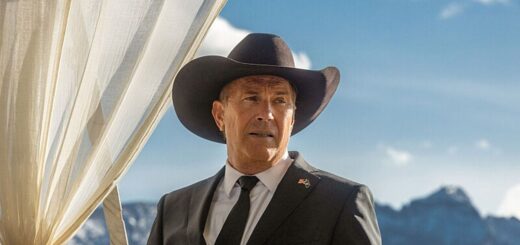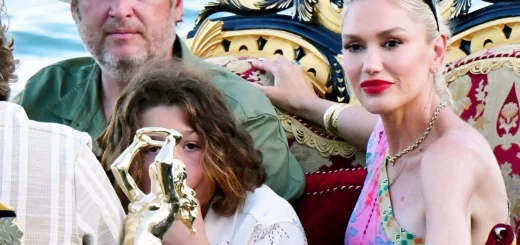Richard Gere is one for the history books. The beloved actor became a worldwide celebrity after his performance in Pretty Woman, and since then, the now 73-year-old has been a heartthrob around the globe.
Richard Gere admits to screwing up his career – he had to “crawl a little bit” to get scripts
Gere’s career has been quite extraordinary, not least because he, at one point, was pretty much banned from making big-time movies. Instead, he focused on doing independent films for one very good reason.
However, looking back, it could’ve ended in a very different way for Richard Gere, who revealed that he not only was close to not doing Pretty Woman – but that he had already screwed up his career at that point.
Richard Gere wasn’t exactly a showman growing up. His interest in films and the theater came way later in life. What was present from the beginning, though, were those sparkling eyes and energetic smile.
Richard Gere – early life
Born on August 31, 1949, in Philadelphia, Pennsylvania, Gere grew up on a farm near Syracuse, New York. He described his childhood as being “normal and all-American.” Early on, sports and music were all he did.
As a kid, Gere was a fantastic gymnast. Still, to this day, his family enjoys watching gymnastics.
Richard played four instruments in high school and even composed several amateur musical shows. This was to be his first interaction with the stage. It took a while, however, before he decided it would be his thing.
Gere started studying philosophy at the University of Massachusetts after getting a gymnastics scholarship. Yet, after only one year in college, he decided to drop out and follow his passion full-time.
At this point, Richard Gere had fallen in love with acting. After a few disastrous shows, Gere decided to try something else and moved “across the pond” to London, England.
There, he landed the role of Danny Zuko in the musical Grease in London. When the musical was set up in New York, he decided to leave and move back to the States. He found work on Broadway in the early 1970s and began shining like a star.

Gere won critical recognition for his portrayal of a convicted murderer in Killer’s Head and decided to do what many of his colleagues did. Instead of working only on the stage, he would transition towards the screen.
Richard Gere – the story of ‘Pretty Woman’
In 1977, Gere got his breakthrough role in the thriller Looking for Mr. Goodbar, starring alongside Diane Keaton. A year later, he landed a starring role in Days of Heaven, and in 1980, Gere got the title role in American Gigolo.
Richard Gere was becoming an actor on the rise. He then became Hollywood’s heartthrob after starring in Pretty Woman alongside Julia Roberts and An Officer and a Gentleman alongside Debra Winger.
Richard Gere’s performance in Pretty Woman sure was something special. The film is one of the greatest ever romcoms, but many might not know that Gere almost didn’t star in it.
In fact, it was Julia Roberts who convinced him to do the film.
“To be honest, I didn’t know if I was doing this movie yet. She’s across the desk, we’re getting to know each other, we’re flirty-flirty, nice-nice,” Gere said in 2015.
“And [director Garry Marshall] calls up and it’s kind of like, ‘How’s it going?’ And I’m going, ‘Yeah, yeah,’ and she takes a piece of paper. She turns it around, and she pushes it to me. It said, ‘Please say yes.’ It was so sweet. And I was like [miming talking on the phone], ‘I just said yes.’”
Gere became very popular due to his many outstanding performances in romantic comedies. However, before the massive success with Pretty Woman, his acting career could’ve been pretty much over, at least on the big screen.

In a 1993 interview, Richard Geree explained that in the first place, he never really thought he’d ever be doing Pretty Woman-type movies.
Richard Gere admitted to screwing up his career before ‘Pretty Woman’
However, before even landing a prominent role, he felt he had screwed up his career.
“Pretty Woman is something I never would have done. Neither is An Officer and a Gentleman. I had no interest in these scripts whatsoever,” Gere said in a 1993 interview with Movieline magazine. “It was the same person knocking my door down on both of them, Jeffrey Katzenberg, first at Paramount, then at Disney, who was one of my first friends out here and still is. At the point of Pretty Woman, I had been kind of out of things for a while. I consciously [had] just said, ‘Going off to do other things’ and I fucked up my career to the point where [people weren’t saying], ‘Well, let’s get Gere to do that.’”
He continued, “I had to crawl a little bit to get scripts. Doing Internal Affairs, for instance, was a very difficult decision for me to make because, potentially, that could have been such a piece of shit.”
“One thing lead to another and I started to see something I could bring to this,” Richard Gere recalled about the time when he considered Pretty Woman. “But it was a fairly mercantile decision, not a soul decision. Made the movie, had a great time making the movie and, probably because of the lack of pressure to do something important, I was able to explore other things in myself and as a man, too. I think I found a much freer way of working in that film, which I’ve used ever since.”
What happened with Pretty Woman, we all know at this point. Although it helped carve the future for Richard Geree’s career years later, he has quite a different opinion. In 2012, the 74-year-old spoke with Woman’s Day Magazine, saying it was a “silly” movie he had forgotten about.
“I’ve forgotten it”
Moreover, Gere said that he believes his character, Edward Lewis, glorified Wall Street financiers and helped contribute to the global financial crisis.
“People ask me about that movie, but I’ve forgotten it. That was a silly romantic comedy. This is a much more serious movie that has some real cause and effect,” Gere said. “It made those guys seem dashing, which was so wrong,” he added. “Thankfully, , today, we are all more sceptical of those guys.”
Gere became very popular due to his many outstanding performances in romantic comedies.
The actor has been in some classic and legendary films but has yet to receive an Academy Award nomination. At the same time, it doesn’t feel like awards and recognition are majorly his thing.
Some actors desperately seek fame and are only willing to star in the most significant possible projects. But Richard Gere isn’t one of them. Looking at his resume, there aren’t any blockbuster or franchise films, no superhero movies or sequels.
“My career has never been thought out,” he told the Independent. “I never engineered a career. I just have always done whatever I wanted.”
“You’re restricted by what you’re offered but the incredible list of brilliant directors and actors and writers I’ve worked with, you know I’m kind of amazed myself that I’ve been able to ride this career this long with such good people.”
Why Richard Gere was banned for life from China
Richard Gere is a loving father with several children. Through the years, he’s been married three times and has dated some of the world’s most famous women, including Priscilla Presley, Cindy Crawford, and Carey Lowell.
Today, Gere is happily married. This time, it’s with someone much younger than him. His beautiful wife, Alejandra Silva, is 33 years his junior.
One would think that with Gere’s career – having spent an eternity in the Hollywood spotlight – he must have tunnel vision for all things film. Yet, as Gere described, one night in 1993 would change his career forever.
Richard Gere became a Buddhist and a great friend of the Dalai Lama.
At the Academy Awards in 1993 – where Gere was to present the award for Best Art Director – he didn’t read from his pre-agreed script. Instead, Gere used his platform to protest China’s occupation of Tibet and its “horrendous, horrendous human rights situation.”
Academy Award’s producer Gil Cates was furious and vowed to ban Gere from future Oscars broadcasts.
Richard Gere wouldn’t let anyone stand in his way regarding his thoughts and beliefs. In 2008, he called for a boycott of the Summer Olympics in Beijing, China. Due to his two different foundations – the International Campaign for Tibet and The Gere Foundation – he was banned for life from China by Chinese authorities.

Richard Gere and China became the worst of enemies, and China soon after became the world’s second-biggest box-office market.
“If you release this film, we’re not buying it”
As a result, Richard Gere says he’s been dropped several times by the most prominent studios simply because the Chinese people and its authorities don’t want anything to do with him in their films.
“There are definitely movies that I can’t be in because the Chinese will say, ‘Not with him’,” Richard Gere explained.
“I recently had an episode where someone said they could not finance a film with me because it would upset the Chinese.”
In 1997, the much-praised Hollywood star was fully aware of how much the big film studios cared about their relationship with the Chinese market. After filming for his role in Red Corner – where he played the role of an American businessman being wrongfully accused in China – studio MGM made a staggering decision.
“Everyone was happy with the film,” Richard Gere said.
“I get calls from the heads of the studio. Went on Oprah. Then, out of nowhere, I get calls saying, ‘We don’t want you doing press.’ MGM wanted to make an overall deal with the Chinese. China told them, ‘If you release this film, we’re not buying it.’ And so, they dumped it.”
Richard Gere may no longer be in the biggest and most lucrative Hollywood productions, but the most important thing is always to follow your passion, and that’s precisely what he’s doing.
Richard Gere enjoys doing independent films
These days, Gere has dedicated his time to smaller films and indie projects – something he absolutely loves. Even though the Hollywood studios don’t want to work with him, it hasn’t affected him negatively.
“The studios are interested in the possibility of making huge profits,” he explained.
“But I’m still making the same films that I was making when I started. Small, interesting, character-driven and narrative-driven stories. It hasn’t impacted my life at all.”
“I’m not interested in playing the wizened Jedi in your tentpole,” he added. “I was successful enough in the last three decades that I can afford to do these [smaller films] now.”


